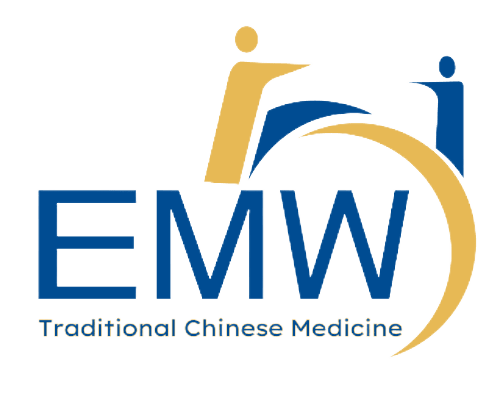What is a good gut health in TCM?
In TCM, good gut health is essential for the body’s vitality as it holds a healthy microbiome which participates in healing and protection against diseases. Effective brain-gut signalling through nerves and hormones ensures overall body optimization and positive mental well-being.
The importance of a good gut health in Modern Science perspective
Firstly, food must be digested and broken down into nutrients for the body to utilize as energy, growth and cellular repair. The digestive system consists of the gastrointestinal tract which begins from the mouth to the anus – participated by the mouth, esophagus, stomach, small and large intestines. Food enters via the mouth and passes through these continuous hollow organs with the involvement of accessory digestive organs teeth, tongue, salivary gland, liver, gallbladder and pancreas. Digestion allows food to be broken down into macronutrients – carbohydrates, proteins and fats and micronutrients – vitamins and minerals.
Secondly, the enteric nervous system which acts as a “second brain” consists of a mesh-like system of neurons that governs gastrointestinal functions such as enzyme secretion, peristalsis and churning of intestinal content. 90% serotonin and 50% dopamine are produced and released by enteroendocrine cells found in the gut as important signalling molecules within the gut-brain axis. Therefore, good gut health has a positive impact on our mood and mental well-being[1].
Thirdly, a microbiome in the gut known as gut flora is essential for effective digestion and assimilation. It establishes the soldiers such as the T and B lymphocytes in our immune system for attack and defends against pathogens. Hence, the role of gut microbiota in regulating innate and adaptive immune homeostasis in our gastrointestinal tract provides essential health benefits to our physical body.
Importance of macronutrients:
Carbohydrates
Carbohydrates are broken down into glucose (a simple sugar molecule) to utilize as fuel by our cells, tissues, and organs. They are the body’s primary energy source vital at all life stages. It is recommended to include high fiber food (a complex carbohydrate) such as green leafy vegetables, fruits, and wholegrains in our diet as it acts as food for gut microbiome and aids in regular bowel movement.
Proteins
Proteins are broken down into amino acids which participate in metabolic reactions, help in cellular repair, provide the body with a structural framework, act as a buffer system to maintain proper pH and fluid balance, and form antibodies to protect your body against bacteria and viruses. Lean protein such as skinless white meat poultry, white fish, tempeh, eggs, and yoghurt should be included in your diet as they improve heart health and increase good cholesterol (LDL cholesterol) in your system.
Fats
Fats are broken down into fatty acids and glycerol which are essential to keep the body warm, provide energy, support cell function, help your body absorb vital nutrients and produce important hormones. Healthy fats such as avocado, fatty fish, nuts and seeds are necessary and beneficial for overall health.
The importance of a good gut health in TCM perspective
Our gut engages actively in digestion and assimilation to ensure optimised functionality of the parasympathetic nervous system for rest and digestion. In Traditional Chinese Medicine (TCM), the Spleen and Stomach are the fundamentals of post-natal energy. They govern the transformation of food sources into nutrients known as the source of Qi and blood which are then transported and distributed to the rest of the body for nourishment. Effective digestion occurs when Spleen Qi displays its upwards bearing function to distribute clear essence of water and grain from the Small Intestine to the Lung for Qi generation while Stomach Qi descend turbidity into the Kidney for waste excretion[2].
In TCM, the Spleen dominates muscles and limbs and provides nourishment to skeletal muscles through its involvement in regulating blood circulation and transporting nutrients in the blood to skeletal muscle to maintain its proper function.
For its biological function, the Spleen is an integral part of the immune system extensively involved in cellular waste removal which includes old and damaged red blood cells, and fighting infections through the production of opsonizing antibodies and white blood cells[3].
Picture courtesy from Spleen Function and Anxiety in Chinese Medicine: A Western Medicine Perspective
The dysfunction of the ascend-descend function of the Spleen and Stomach can upset the functional activities of the vegetative nervous system of the gut and cause gastrointestinal disturbance and one of which is the Spleen deficiency syndrome.
Common symptoms for Spleen Qi deficiency:
- Loss of appetite
- Feeling nausea
- Gas or bloating worsens after meals
- Acid reflux
- Not refreshed in the morning when waking up
- Fatigue spells throughout the day
- Prolonged menstrual bleeding with scanty flow
- At the risk of type II diabetes mellitus
References
- Hornbuckle WE, Simpson KW, Tennant BC. Gastrointestinal Function. Clinical Biochemistry of Domestic Animals. 2008:413–57. doi: 10.1016/B978-0-12-370491-7.00014-3. Epub 2008 Oct 22. PMCID: PMC7173558.
- Wu XN. Current concept of Spleen-Stomach theory and Spleen deficiency syndrome in TCM. World J Gastroenterol. 1998;4(1):2-6. doi:10.3748/wjg.v4.i1.2
- Jia T, Pamer EG. Immunology. Dispensable but not irrelevant. Science. 2009 Jul 31;325(5940):549-50. doi: 10.1126/science.1178329. PMID: 19644100; PMCID: PMC2917045.
Our TCM Physicians
Principal TCM Physician
- M.Med(TCM Gynaecology)
- B.Sc(Hons) Biomedical Sciences
- Dip. Naturopath
- Ayurvedic Therapist(500hrs)
- Registered TCM Physician (Singapore MOH)
Senior TCM Physician
- M.Med(TCM Acupuncture & Moxibustion)
- B.Sc(Hons) Biomedical Sciences
- Certified Aromatherapist
- Registered TCM Physician (Singapore MOH)
TCM Physician
- M.Med(TCM Gynaecology)
- B.Sc(Hons) Biomedical Sciences
- Registered TCM Physician (Singapore MOH)
TCM Physician
- B.Med(TCM)
- B.Sc(Hons) Biomedical Sciences
- International Board-Certified Lactation Consultant (IBCLC)
- Registered TCM Physician (Singapore MOH)







